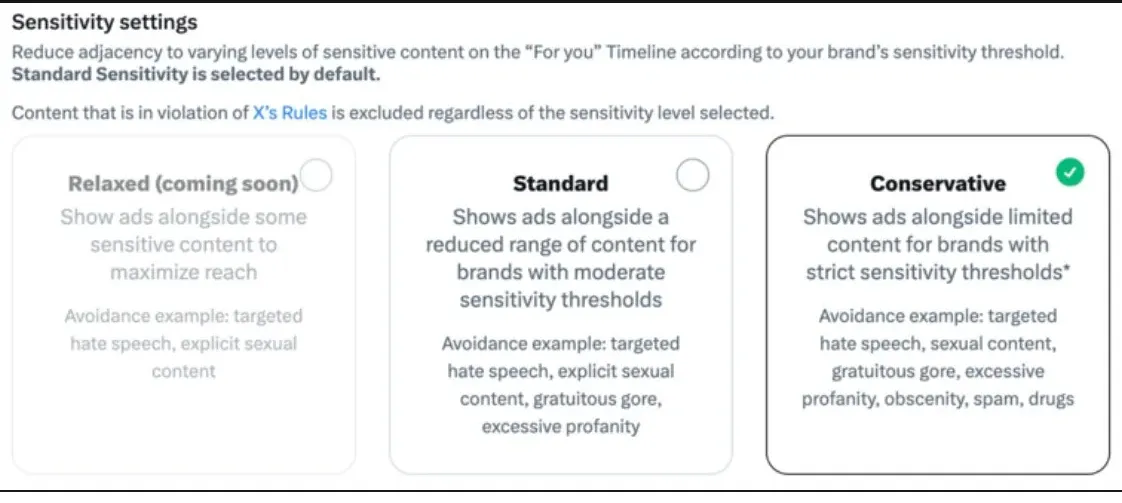X Seeks to Reassure Advertisers with ‘Sensitivity Settings’
The company formerly known as Twitter has introduced “sensitivity settings” that provide advertisers with additional control over the type of content that can be displayed alongside their ads. This allows advertisers to select from various content filtering options.
The new controls arrive as X becomes increasingly desperate to win back advertisers. The company’s ad revenue has fallen 50 percent since Elon Musk took over, as brands cut spending on the platform due to an increase in hate speech and other objectionable content. Since then, watchdog groups have reported several cases of big brand ads being placed near neo-Nazi accounts, Holocaust deniers and other previously suspended users.
With the new tool, X says it will “reduce machine learning in an upcoming campaign to reduce the proximity of different levels of content according to the brand’s sensitivity threshold.” Currently, the two settings available to advertisers are “Conservative” and “Standard”. The company points out that all content that violates the rules is meant to be excluded from ads, regardless of what the advertisers have chosen.

The most “conservative” setting would exclude ads near “targeted hate speech, sexual content, unnecessary gore, excessive profanity, profanity, spam and drugs” in the “For You” timeline. The “Standard” option would avoid the same topics, but allow spam and drug-related content, as per the example shared by X. The company also plans to add a “casual” setting for advertisers who want to “maximize reach.” ads with the fewest restrictions on what can be seen nearby.
The update isn’t the first time X has introduced tools to promote brand safety. The company has previously added other keyword-based “adjacency controls” that were also intended to limit ad buyers’ exposure to problematic content. But these changes in December appear to have had little impact on X’s advertising business.
Although the company has repeatedly claimed that it has successfully limited the reach of hate speech on its site, researchers have said otherwise. Last month, Bloomberg reported that Center for Countering Digital Hate (CCDH) researchers targeting hate speech have grown in both sheer volume and engagement since Musk took over the company. X disputed the findings and is now suing CCDH, claiming the group “illegally” scraped the data.




